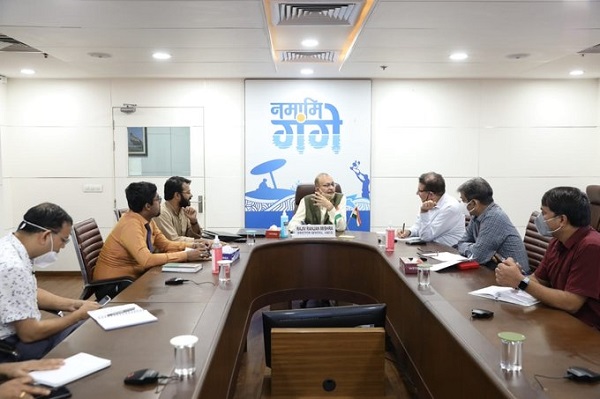New Delhi, (Samajweekly) The National Mission for Clean Ganga (NMCG) has signed an MoU with the South Asian Institute for Advanced Research and Development (SAIARD) to create an academic platform to engage young students as well as develop a research and capacity building hub to support regional development in the eastern region.
Both NMCG and SAIARD will work together to create and enhance capacity building on integrated river basin management, with a focus on geospatial technology in riverine ecosystems.
With the signing of this MoU, SIAIRD will also henceforth be considered as the regional capacity building center for NMCG in the eastern region, a release from the Jal Shakti Ministry said here on Wednesday.
The MoU was signed in the presence of Director General, NMCG, Rajiv Ranjan Mishra, Director, National Institute of Urban Affairs (NIUA) Hitesh Vaidya and chairman, SAIARD, Dr. Biswajit Roy Chowdhary.
The areas of collaboration include: To conduct studies pertaining to diverse thematic areas in the field of integrated river basin management with an emphasis on management of water, wastewater and integrated urban water management for the development of sustainable practices for rejuvenation of river and water systems, the release said.
The MoU will also aim to provide support in policy making for the development of riverine areas and river sensitive urban planning and to provide support in the preparation of river data base apart from helping to develop a capacity building programme on geospatial technology and other areas for NMCG and other stakeholders to support internship and research.
It will also help to develop a digital river library, river museum and online news portal.
Additionally, in the presence of DG NMCG, an MoU was also signed between NIUA and SAIARD.
NMCG is working with NIUA to develop river sensitive master plans and urban river management plans. In this collaboration SAIARD Centre for Urban and Built Environment (CUBE) will take the lead on behalf of SAIARD to work with NIUA to implement all kinds of capacity building activities, which include the development and sharing of knowledge products for concerned stakeholders for mainstreaming climate resilience.
It will help in providing handholding support for formulating, implementing and performance monitoring of strategies and actions plan under Climate Smart Cities Assessment Framework; development and implementation of innovative practices, data and technology frameworks for addressing climate impact in cities; and collaboratively work towards urban climate resilience, the release added.










